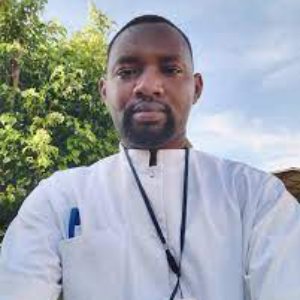Title : The value of mixed and group-based exercise in stroke rehabilitation and secondary prevention: Results from a randomized cross-over trial in low-income settings
Abstract:
Background: Post-stroke mobility deficits and physical inactivity are highly prevalent. Although physical activity has been shown to be effective for poststroke people, access to exercise training protocols is limited in community especially low-income settings. In addition, the impact of exercise in preventing recurrence is often overlooked.
Purpose: To investigate the efficacy of a “Circuit walking, Balance, Cycling and Strength training (CBCS) trial on global activity and mobility in stroke survivors.
Methods: Forty-six (46) community-dwelling post-stroke people, no longer in conventional rehabilitation were randomized into Immediate CBCS group (IG, n=23; initially receiving CBCS training for 12 weeks in phase 1), and a delayed CBCS group (DG, n=23) which participated in socio-cultural activities for 12 weeks. In phase 2, participants in the DG group were crossed over to receive CBCS and those of the IG were followed in socio-cultural activities. The interventions were applied three times a week for 12 weeks in either phase 1 or phase 2. Participants were assessed at baseline, after intervention (12 weeks), after cross-over (24 weeks) and at follow up (3 months). The primary outcome was ADL limitations (ACTIVLIM-Stroke scale). Secondary outcomes included mobility: 6-minute and 10-metre walk tests [6MWT and 10mWT] and stroke risk factors (Blood pressure and type-2 diabetes).
Results: The CBCS group improved significantly and clinically functional independence (ADL limitations; ACTIVLIM-stroke, +3,4 logits, P < .001, effect size [ES] 0.87), and mobility (+145 m for 6MWT and +0.37 m/s for 10mWT; p < 0.001; ES 0.7 and 0.5 respectively). Following CBCS, there was reduction in HbA1c (8.6 ± 1.0% to 6.8 ± 0.9%, p < 0.05, n=26) and blood pressure reduction (4 ± 6 mm Hg diastolic and 3 ± 4 mm Hg systolic, n=16). The benefits persisted for at least 3 months after intervention completion.
Conclusion: CBCS improved globally functional independence (ADL limitations and mobility) in chronic stage of stroke. CBCS attendance yields benefits in stroke recurrence prevention
Implications: Developing and delivering cost-effective, equitable-access rehabilitation services to stroke people is still a challenge in low- and middle-income countries (LMICs). Limited geographical and financial access to medical and rehabilitation care is the main barrier. This study highlights the value of mixed, group and community-based training, a cost-effective intervention in low-income countries, where its ease of administration and local accessibility may be key to improving adherence and long-term outcomes. This group-based intervention could contribute to secondary stroke prevention.
Key terms: Stroke, Secondary prevention, Activities of daily living, Mobility, group-based rehabilitation, community rehabilitation, Low-and middle-income countries



